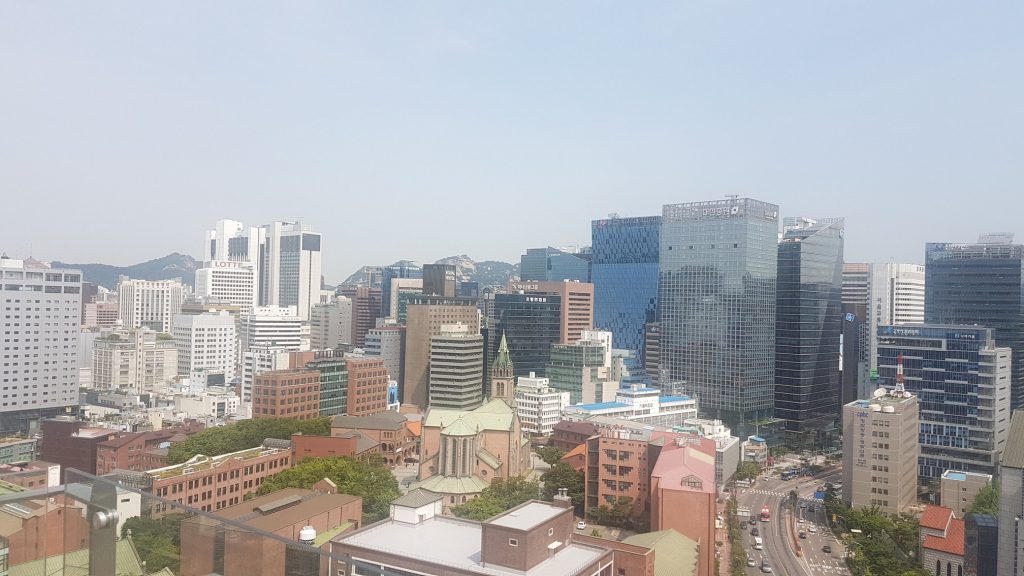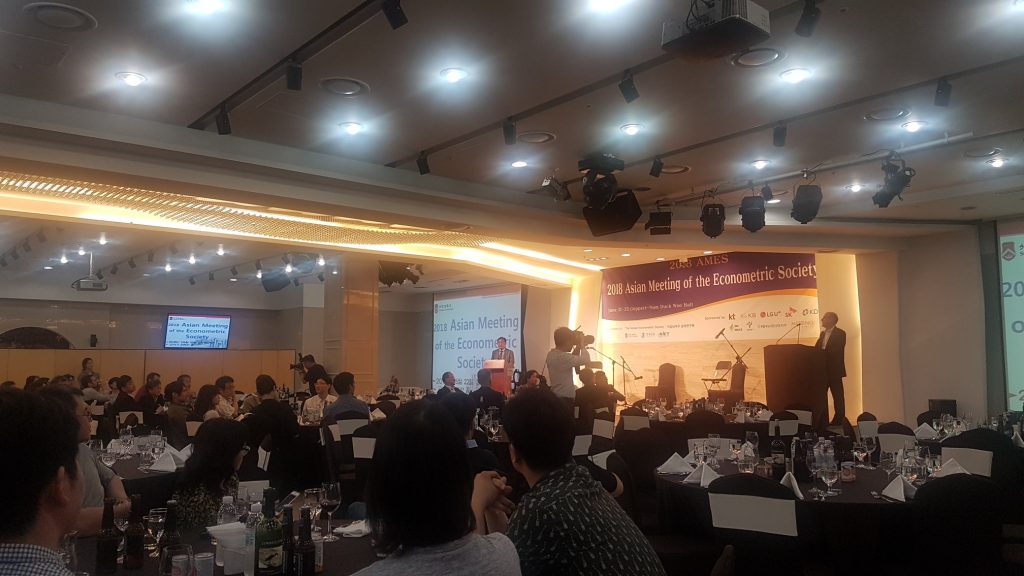 I spent 5 days in Seoul where I attended the Asian Meeting of the Econometric Society. Econometric Society’s annual meetings are the largest annual meeting of academic economists around the globe alongside American Economic Association and Royal Economic Society.
I spent 5 days in Seoul where I attended the Asian Meeting of the Econometric Society. Econometric Society’s annual meetings are the largest annual meeting of academic economists around the globe alongside American Economic Association and Royal Economic Society.
Many academics and institutions contributed to the 2018 Asian Meeting of the Econometric Society. The Korean Econometrics Society provided financial support and human resources and The School of Economics of Sogang University provided facilities as the host for the conference. It is worth noting that, Sogang University is one of the leading research and liberal arts universities in South Korea. The university was established in 1960 by the Wisconsin province of the Society of Jesus to provide education based on Catholic beliefs inspired by the Jesuit educational philosophy.
The invited speakers provided a great start to this year’s conference with Benjamin Moll (Princeton, American Economic Journal: Macroeconomics), Barbara Rossi (Universitat Pompeu Fabra, Journal of Applied Econometrics) and Esfandiar Maasoumi (Emory University, Econometric Reviews) getting the proceedings going. The conference provided a wealth of options for attendees with over 130 morning and afternoon sessions planned. On the second day, Tim Besley (LSE, Economica), delivered an engaging presidential address on state capacity, reciprocity, and the social contract.

My session was on development and international trade and I presented a paper on international interdependencies and income inequality. Although the size of in-kind redistributions may have considerable consequences for inequality, it is largely neglected by income inequality metrics such as the Gini index and the income quintiles. The paper I presented departs from traditional approaches by studying an enhanced index of inequality, which integrates the effects of in-kind benefits to provide a more holistic and realistic description of inequality conditions within a panel of 18 European countries during a period spanning 16 years.
This research is also innovative in that it captures a broader set of indicators and associations for assessing the international dimensions affecting the proposed inequality index and its relationship with poverty conditions. Also, going beyond national policy agencies, this study shows how important EU integration is for inequality.
We were indeed spoilt for choice of sessions to attend on various topics including the labour market, health, technology, development, economic and econometric theory. I attended several sessions related to empirical public economics, applied econometrics, income inequality in macroeconomics and labour market, which allowed me the opportunity to hear about lots of exciting high quality papers with a wide range of applied methods. To add to this we had the unique chance to discuss our papers with the editors of world leading economics journals.
I could write much more but overall it has been a great experience attending the Asian Meeting of the Econometric Society this year. On a social level, I really enjoyed catching up with old friends and building connections with new ones. I had a chance to explore the city during my stay and enjoyed every moment I spent on Seoul’s streets: walking around Myeongdong, going up the N tower to get a whole view of the city, strolling around Gangam, and of course, sampling must eat street food such as tteokbokki, gyeran-Bbang, gimbap, and red bean mochi!
Thanks for putting together a great conference Econometric Society. Hoping to make it back next year!
Written by Dr Deniz Sevinc, Research Fellow, City-REDI.
Disclaimer:
The views expressed in this analysis post are those of the authors and not necessarily those of City-REDI or the University of Birmingham
To sign up for our blog mailing list, please click here.
